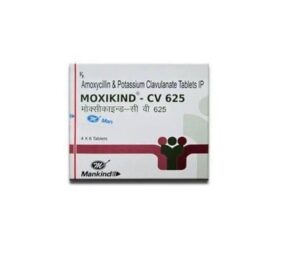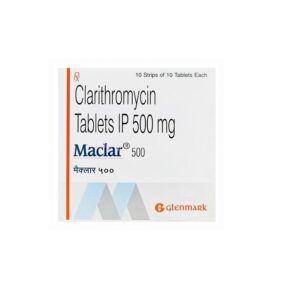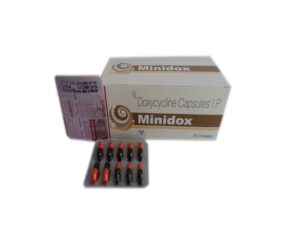Note: Antibiotics are used to treat bacterial infections and are NOT effective against viruses, such as COVID-19 coronavirus.
What Is Zithromax or Z-PAK?
Zithromax or Z-PAK (azithromycin) is a semi-synthetic macrolide antibiotic used for treating:
- otitis media (middle ear infection),
- tonsillitis,
- laryngitis,
- bronchitis,
- pneumonia,
- and sinusitis caused by susceptible bacteria.
Zithromax is also effective against several sexually transmitted infectious diseases (STDs) such as nongonococcal urethritis and cervicitis. Zithromax is available in generic form.
What Are Side Effects of Zithromax Z-PAK?
Common side effects of Zithromax include:
- diarrhea or loose stools,
- nausea,
- abdominal pain,
- stomach upset,
- vomiting,
- constipation,
- dizziness,
- tiredness,
- headache,
- vaginal itching or discharge,
- nervousness,
- sleep problems (insomnia),
- skin rash or itching,
- ringing in the ears,
- hearing problems,
- or decreased sense of taste or smell.
INDICATIONS
ZITHROMAX (azithromycin) for injection is a macrolide antibacterial drug indicated for the treatment of patients with infections caused by susceptible strains of the designated microorganisms in the conditions listed below.
Community-Acquired Pneumonia
due to Chlamydophila pneumoniae, Haemophilus influenzae, Legionella pneumophila, Moraxella catarrhalis, Mycoplasma pneumoniae, Staphylococcus aureus, or Streptococcus pneumoniae in patients who require initial intravenous therapy.
Pelvic Inflammatory Disease
due to Chlamydia trachomatis, Neisseria gonorrhoeae, or Mycoplasma hominis in patients who require initial intravenous therapy. If anaerobic microorganisms are suspected of contributing to the infection, an antimicrobial agent with anaerobic activity should be administered in combination with ZITHROMAX.
ZITHROMAX for injection should be followed by ZITHROMAX by the oral route as required.
EXPERT ADVICE FOR AZITHROMYCIN
-
Do not skip any doses and finish the full course of treatment even if you feel better. Stopping it early may make the infection to come back and harder to treat.
-
Take it 1 hour before or two hours after food.
-
Do not take antacids 2 hours before or after taking Azithromycin.
-
Diarrhea may occur as a side effect but should stop when your course is complete. Inform your doctor if it doesn’t stop or if you find blood in your stools.
-
Stop taking Azithromycin and inform your doctor immediately if you develop an itchy rash, swelling of the face, throat or tongue or breathing difficulties while taking it.
FREQUENTLY ASKED QUESTIONS FOR AZITHROMYCIN
Azithromycin
Q. Is Azithromycin safe?
Azithromycin is safe if used at prescribed doses for the prescribed duration as advised by your doctor.
Q. What if I don’t get better?
You should inform your doctor if you do not notice any improvement in your symptoms after 3 days of taking Azithromycin. Also, if your symptoms get worse, inform your doctor immediately.
Q. Can the use of Azithromycin cause diarrhea?
Yes, the use of Azithromycin can cause diarrhea. It is an antibiotic which kills the harmful bacteria. However, it also affects the helpful bacteria in your stomach or intestine and causes diarrhea. If you are experiencing severe diarrhea, talk to your doctor about it.
Q. Can Azithromycin be taken at night?
Azithromycin is usually prescribed once daily. You can take it at any time of the day, but remember to take it at the same time each day. The medicine should be taken 1 hour before meals or 2 hours after eating food. You can take the tablet preparation with or without food. However, you must take Azithromycin exactly as advised by your doctor and ask your doctor if you have any doubts.
Q. How long does Azithromycin takes to work?
Usually, Azithromycin starts working soon after taking it. However, it may take some days to kill all the harmful bacteria and make you feel better.
Q. Why is Azithromycin given for 3 days?
The duration of treatment depends on the type of infection being treated and the age of the patient. Azithromycin is not necessarily given for 3 days. In most bacterial infections, a single dose of 500 mg is given for 3 days. Alternatively, it can be given as 500 mg once on day 1 and then 250 mg once from day 2 to day 5. In some cases of infection such as genital ulcer disease, it is given as a single 1 gram dose. Therefore, you must stick to the regime advised by your doctor.
Q. What should I avoid while taking Azithromycin?
Generally, it is recommended that patients taking Azithromycin should avoid taking any antacid with this medicine as this can affect the overall effectiveness of Azithromycin. It is also recommended to avoid exposure to sunlight or tanning beds as Azithromycin increases the risk of sunburn.
Q. Is Azithromycin a strong antibiotic?
Azithromycin is an effective antibiotic that is used for the treatment of many bacterial infections. Compared to other antibiotics, Azithromycin has a longer half-life which means that it stays in the body for a long time because of which it is given once a day and for a short span of time. Other antibiotics comparatively have a shorter half-life and are usually given twice, thrice, or four times a day.
Q. Can you get a yeast infection from taking Azithromycin?
Some people may get a fungal or yeast infection known as thrush after taking Azithromycin. Antibiotics such as Azithromycin can kill the normal or ‘good bacteria’ of your intestine responsible for preventing thrush. You should inform your doctor if you get a sore or vaginal itching or discharge. Also, inform your doctor if you get a white patch in the mouth or tongue after taking Azithromycin or soon after stopping it.








Reviews
There are no reviews yet.